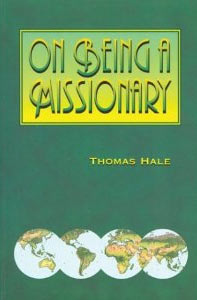 Making the Transcultural Connection
Making the Transcultural Connection
I’ve been on hiatus hoping that the notes I made to outline this post would turn up, but they have, alas, disappeared into the ether. What follows, then, will be completely unscripted, so buckle up.
The main point of this chapter is that we ought to display primarily the love of Christ to the people we aim to reach. This chapter fills out the picture for us, “loving people is not enough; we must also know and understand them.” I got a bit ahead of myself talking about cultural differences in the last post. This chapter deals with much of the same, but hones in on a handful of paradigms that are helpful in understanding the great cultural differences that exist between us and the Karamojong.
The first of these paradigms Hale discusses is being time versus event-oriented. The West is very concerned with time—arriving on time, organizing one’s daily schedule, cursing the delays of traffic (even though they are ubiquitous for many of us). In contrast, much of the Third World is event-oriented, arriving late, staying late, and letting an event run its course instead of rushing off to the next engagement. If you are familiar with my habits (and the habits of my people, the Verdicks, in general), you’ll be putting this adjustment at the top of your list as you pray for us.
A second paradigm is being crisis-oriented versus not. As modern technophiles living in a society that has overcome many basic human afflictions (cheap & abundant potable water, airplanes, age-defying facial cream, and escalators), we tend to feel much more in control of our situations than most in the Third World. When our town is flooded, we expect that the National Guard will arrive to pump the city dry while the Red Cross gives us shelter and food. For the many people in the world who do not have access to many modern advances, the outlook is much more fatalistic. We tend to meet crises with resolve; they tend to face the same with a hopeless resignation.
The third major paradigm is the orientation toward tasks versus orientation toward persons. We place a high value on workmanship, industry, accomplishment. Many areas in the Third World places a high value on maintaining relationships and avoiding confrontation. As missionaries, it is our calling to leave many of our American patterns and expectations at home, making ourselves willing to learn a new way of life in order to reach the people we go to win.
Much of the rest of the chapter is devoted to discerning the degree to which the Gospel ought to be indigenized and how Christians are to interact with other faiths. On this, much of Hale’s discussion is distilled quite eloquently when he writes,
“We must not forget that those who do not know Jesus cannot know God in the fullest sense. Their sins have not been forgiven. They are not in God’s family. Insofar as other belief systems point men away from Christ, they are tools of Satan. It is Satan who leads men to worship idols, to create caste systems, to oppress women, to perpetuate tribalism. Our struggle is against him, not against the people and their customs. Behind the idol, the stone, the shaman, is Satan.”
Hale continues to talk about determining what cultural norms are not antagonistic to the Gospel, and which must be jettisoned (This is where I got ahead of myself talking about this very subject in the previous post). He writes that missionaries ought to take a back seat to the cultural wisdom of new converts—offering guidance, but allowing the local believers to come to consensus about how best to live the Christian life within their culture. He writes,
“The Gospel will raise objections. It demands that people shift their allegiance from self to Christ…[t]he new convert is leaving one kingdom, one set of values, and entering into another kingdom with a new set of values. He’s being born again, and anyone who has observed a delivery knows that being born is traumatic.”
While being born is traumatic (at least as traumatic as watching a birth in high school Biology), it also means new life, and it is our calling to help foster and safeguard this life—to raise it and guide it so that it might be strengthened to go out and aid others in being born.
This is insightful and challenging…but I know of no better persons to meet this challenge than the Verdicks. If anyone is to step outside of our western paradigms with ease, it is you. I look forward to reading future blogs on your acclamation with the Karamajong. Thank you for your life of testimony to the Gospel and to Jesus. Kinda Lovesick, huh.
Christopher
Beloved Chris and Chloe:
It is a blessing and honor to come along side you as you embark on this truly remarkable adventure in the service of our Great God and Savior, Jesus Christ the Lord. Your blog is such an inspiration and heart-warming experience–all I can say is, “Via con Dios”. You are in my heart and prayers.
Love in Christ,
Karen
Wow…this all goes against the grain of “Americanism”…..and yet, perhaps more like the culture in Jesus’ day. Good thing the core “you” isn’t American 🙂